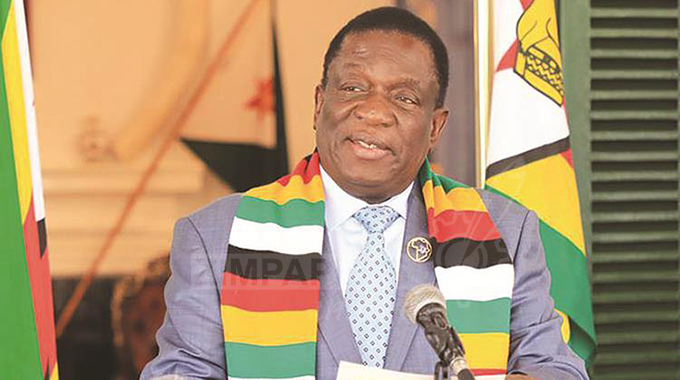Covid-19, whole of humanity must fight back

Fungai Muderere, Senior Reporter
THE UN recently unveiled a US$2 billion Covid-19 Global Humanitarian Response Plan which is aimed at protecting millions of the most vulnerable people from the disease.
The plan will assist people in 51 countries across South America, Africa, the Middle East and Asia.
To support that fund, some developed countries including Canada and Norway, have pledged to increase overseas aid.
It cannot be over emphasised that aid agencies, among them Plan International have done a good job by continuously providing hygiene supplies, supporting health infrastructure, and by raising awareness on the risks to girls and influencing response strategies to address these.
This has enabled the aid agency to create space for voices of young women to be heard, in the process adapting to their existing development programming to best support young women and girls dealing with Covid-19.
But this is still not enough.
In that regard, in the wake of this ravaging global pandemic it does not need any chameleonic caution for one to say more countries must emulate Canada and Norway if we are to defeat Covid-19.
Great global camaraderie is needed to kick out Covid-19 and we recently learnt with pleasure that the Zimbabwe Professional Nurses Union (ZPNU) clinched a deal with a Chinese-based organisation for the supply of personal protective equipment (PPE) to 3 000 healthcare workers in the country who are in the frontline of the coronavirus fight.
President Mnangagwa is on record thanking China and other countries for the support they have rendered to Zimbabwe as it stepped up ways to battle Covid-19.
China has funded the refurbishment and upgrading of Zimbabwe’s main Coronavirus isolation and treatment centre, the Wilkins Hospital, in Harare.
As if that is not enough, China also has a medical team in Zimbabwe which is assisting the country’s health personnel with training on Covid-19.
Zimbabwe has 14 confirmed cases of Covid-19 and three deaths. Covid-19 has killed more than 110 000 people worldwide and there are more than one million reported cases.
Coronavirus has a foothold across the globe and is now reaching countries that were already facing humanitarian crises because of conflict, natural disasters and climate change.
UN secretary-general António Guterres said: “Covid-19 is menacing the whole of humanity – and so the whole of humanity must fight back. Individual country responses are not going to be enough. We must come to the aid of the ultra-vulnerable – millions upon millions of people who are least able to protect themselves. This is a matter of basic human solidarity. It is also crucial for combating the virus. This is the moment to step up for the vulnerable.”
Under-Secretary-General for Humanitarian Affairs Mark Lowcock said:
“Covid-19 has already upended life in some of the world’s wealthiest countries. It is now reaching places where people live in warzones, cannot easily access clean water and soap, and have no hope of a hospital bed if they fall critically ill.
“To leave the world’s poorest and most vulnerable countries to their fate would be both cruel and unwise. If we leave Coronavirus to spread freely in these places, we would be placing millions at high risk, whole regions will be tipped into chaos and the virus will have the opportunity to circle back around the globe.
“Countries battling the pandemic at home are rightly prioritising people living in their own communities. But the hard truth is they will be failing to protect their own people if they do not act now to help the poorest countries protect themselves.
“Our priority is to help these countries prepare and continue helping the millions who rely on humanitarian assistance from the UN to survive. Properly funded, our global response effort will equip humanitarian organisations with the tools to fight the virus, save lives, and help contain the spread of Covid-19 worldwide.”
Plan International executive director of Global Programme Operations Damien Queally recently reckoned: “This virus (Covid: 19) is universal, it does not respect borders. Europe and North America are the current epicentres. Governments, donors and other businesses are understandably concerned with tackling the virus in their own countries. But we have seen how quickly it escalates, and while Covid-19 remains prevalent in any part of the world, none of us is safe.”
Thus global solidarity in tackling and containing the spread of Covid-19 in poorer countries with fragile health systems is vital.
The Covid-19 Global Humanitarian Response Plan needs to be implemented by UN agencies as soon as possible.
We presume that the whole world is greatly looking forward to seeing non-governmental organisations (NGOs) playing a direct role delivering essential laboratory equipment to test for the virus, and medical supplies to treat people, install handwashing stations in camps and settlements, launch public information campaigns on how to protect yourself and others from the virus and establish airbridges and hubs across Africa, Asia and Latin America to move humanitarian workers and supplies to where they are needed most.
It is critical for the whole of humanity to stand up in support of the Covid-19 Global Humanitarian Response Plan to help the intended beneficiaries to fight back and prevent Covid-19 from escalating in the global south because the consequences could be truly devastating.








Comments